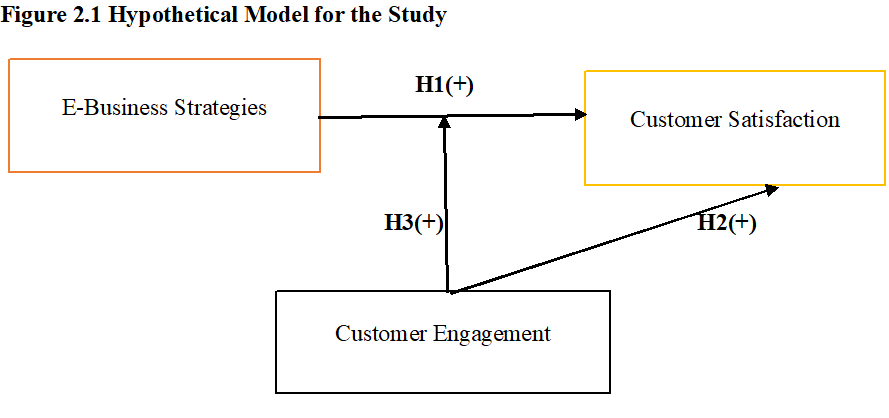E-Business Strategies and Customer Satisfaction: The Role of Customer Engagement in The Banking Sector
Authors
Abstract
Purpose: In Ghana, the banking sector is increasingly leveraging e-business strategies such as online banking platforms, mobile banking applications, and real-time customer support to improve service delivery and enhance customer satisfaction. Despite these advancements, achieving consistent customer satisfaction remains a significant challenge. Studies indicate that gaps often exist between customer expectations and the actual experiences provided by e-business platforms, leading to dissatisfaction and attrition. This disconnect raises questions about the effectiveness of e-business strategies in meeting the diverse needs of customers within the Ghanaian banking sector. Customer engagement has been recognized as a critical factor in bridging this gap. Engaged customers are more likely to derive satisfaction from e-business platforms, as they feel valued and involved in the service process. However, evidence suggests that many banks in Ghana have yet to fully capitalize on the potential of customer engagement to maximize the benefits of e-business strategies.
Method: A convenience sampling technique was used to obtain a sample size of 260. This study adopts an explanatory research design, which is appropriate for identifying and analyzing cause-and-effect relationships among variables. This study relies on primary data as the main source of information for examining the factors influencing the implementation and performance of e-business services within the banking sector. A structured questionnaire using a Likert scale was employed as the data collection instrument.
Findings: The findings of the study showed a positive relationship between e-business strategies and customer satisfaction. The second analysis demonstrated that customer engagement has an even stronger influence on customer satisfaction. Crucially, the moderation analysis revealed that customer engagement significantly enhances the impact of e-business strategies on customer satisfaction.
Unique Contribution to theory, practice, and policy: The findings affirm and extend existing theories in digital marketing and relationship management by demonstrating that both technological capability and relational dynamics are vital to fostering customer satisfaction. Organizations should continue investing in digital technologies such as user-friendly websites, mobile apps, personalized online services, and efficient e-commerce systems.




